By Br. Steve Herro, O. Praem.
“You have formed us for Yourself, O Lord, and our hearts are restless until they rest in You.” —St. Augustine | Confessions 1.1
What do Universal Pictures and the United States Conference of Catholic Bishops (USCCB) have in common? Both rolled out a major production on racism and U.S. race relations in November: “Green Book” and Open Wide Our Hearts: The Enduring Call to Love, respectively. Producers describe the movie as follows:
When Tony Lip (Mortensen), a bouncer from an Italian-American neighborhood in the Bronx, is hired to drive Dr. Don Shirley (Ali), a world-class Black pianist, on a concert tour from Manhattan to the Deep South, they must rely on “The Green Book” to guide them to the few establishments that were then safe for African-Americans. Confronted with racism, danger as well as unexpected humanity and humor—they are forced to set aside differences to survive and thrive on the journey of a lifetime.
In the beginning of their pastoral letter, the bishops write why the production of Open Wide Our Hearts was necessary today:
Racism comes in many forms. It can be seen in deliberate, sinful acts. In recent times, we have seen bold expressions of racism by groups as well as individuals. The re-appearance of symbols of hatred, such as nooses and swastikas in public spaces, is a tragic indicator of rising racial and ethnic animus. All too often, Hispanics and African Americans, for example, face discrimination in hiring, housing, educational opportunities, and incarceration. Racial profiling frequently targets Hispanics for selective immigration enforcement practices, and African Americans, for suspected criminal activity. There is also the growing fear and harassment of persons from majority Muslim countries. Extreme nationalist ideologies are feeding the American public discourse with xenophobic rhetoric that instigates fear against foreigners, immigrants, and refugees. Finally, too often racism comes in the form of the sin of omission, when individuals, communities, and even churches remain silent and fail to act against racial injustice when it is encountered.
After viewing the former this afternoon, I understand why many see it as a 2019 Oscar candidate; it already has vaulted to one of my favorite Christmas movies. If you are looking for an informative interview/review try “ ‘Green Book’ Is About Race – And Also Friendship, Class And Masculinity” (National Public Radio, November 23, 2018).
Hollywood producers and the teaching offices of our faith traditions can continue to publish, preach, and teach to offset racism and prejudice in our history and current society, but whether the silver screen or the pulpit is more formative in our world view, the message must filter beyond the walls of movie theatres and our churches, synagogues, temples, and mosques. As one commentator noted about “Green Book”: don’t fool yourself to think that you are not a racist simply because you paid to see this movie.
In a similar vein, I reminded a friend who accompanied me to the movie that the election of the first U.S. president of color did not denote the end of racism in our country. We might also ask ourselves questions such as:
- “Are our schools accurately portraying American Jim Crow of the 20th century?”
- “What unfair stereotypes do we hold in regard to masculinity and lower ethnic class Americans?”
- “Do we unjustly pigeonhole men and women who are artistically inclined?”
The movie has an extremely powerful closing scene. After racing back to New York City from Birmingham to be home for Christmas (while being delayed by a police pull-over, a flat tire, and a northeastern snowstorm), Dr. Shirley crashes Tony’s family’s Italian Christmas feast. Several generations of rough-and-tumble lower-class Italian Americans welcome the elegantly polished African-American pianist into their home for a Christmas celebration. Bread is broken, food is shared, stereotypes are destroyed, and bridges are built. By the end of the movie, Tony had finished his two month gig as Dr. Shirley’s driver and bodyguard, but the two historical figures on which the movie is based remained friends until both died in 2013.

